Cameron Smith must learn from Steve Smith and see the big picture, writes Paul Kent
Cameron and Steve Smith are both icons of their sport, the best at what they do. Both have also been embroiled in varying degrees of controversy, but the way they dealt with their issues contrast completely.
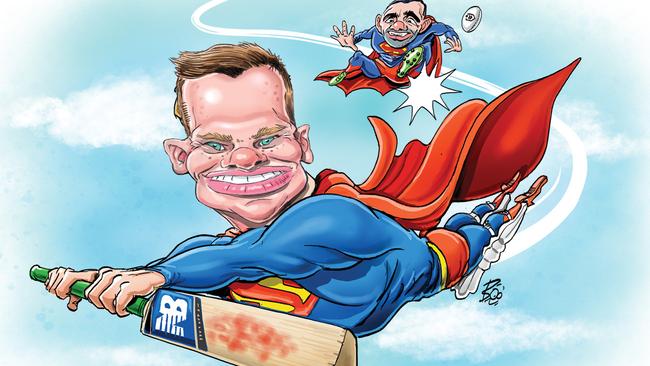
Storm
Don't miss out on the headlines from Storm. Followed categories will be added to My News.
GONE SOFT? Cronulla searching for Sharks DNA
DROPPING: Another Knights contender out of running
In the end Steve Smith didn’t make it out for Australia in this Test.
Doctors ruled Smith out with concussion.
It left a hole in the Australian batting line-up that was filled only when Smith, back from a year-long suspension for ball tampering, came back to make 144 and 142 in the first Ashes Test won by Australia.
In each innings Smith walked out to boos. When he passed 50 more boos rang down and they got deeper when he reached his centuries.
Stream over 50 sports live & anytime on your TV or favourite device with KAYO SPORTS. The biggest Aussie sports and the best from overseas. Just $25/month. No lock-in contract. Get your 14 day free trial >

MORE NRL NEWS
SPORT CON: SAILOR’S SON SET FOR NRL DEBUT
REVEALED: SECRETS OF NRL’S GRAPPLING GURU
In each case Smith made no complaint but got on with the job of hurting England.
Smith got struck in the neck in the second Test, retired hurt on 80, and then bravely returned at the next wicket to a chorus of English boos.
Former Australian vice-captain Ian Healey called it “disgusting”. Former England captain Michael Vaughan urged fans to “stop booing”, saying Smith “deserves a standing ovation”.
In the end, British sports minister Nigel Adams felt it was important enough to step in.
“It’s distasteful and we have to remember that the Aussie players who got themselves into trouble have been punished and done the time,” Adams said.
The England fans feel justified booing Smith after his role in the ball-tampering scandal that cost him a 12-month ban.
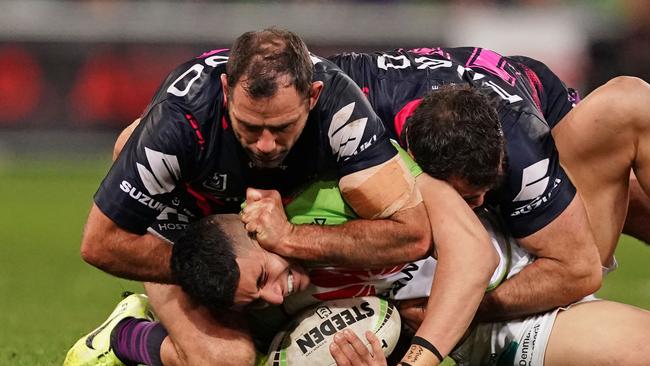
On the same day and half a world away another Smith, Cameron Smith, pulled a jersey over Bailey Simonsson’s ear and took a grip. He used the ear as a fulcrum to choke Simonsson with his own collar, the right hand hidden on the other side but pulling the collar tight across Simonsson’s throat.
Smith was penalised and, like in England, boos rang out.
This time, though, the boos came shortly after when Smith was indignant enough to approach referee Ben Cummins for an explanation.
“I just want some clarification on what that penalty was up there?” Smith said.
“Rubbish on the face,” said Cummins, “and it was you.”
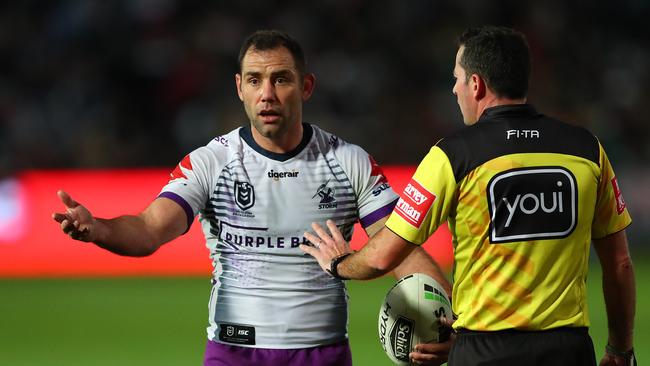
Smith laughed out loud, like it was comical. Boos rang out in the crowd, unusual given it was a Melbourne home game.
“Mate? Rubbish on the face?” Smith said. “Ok, no worries … so they haven’t had anything?”
“That’s the call,” said Cummins, trying to end it.
“Mate,” said Smith, “they got me up here in that tackle where you told me to go back and play it.”
“Cameron, you were milking there. You were locking him in mate.”
He was still indignant, but after briefly walking away he came back with a new tact.
“I’ve been in the game long enough,” he said.
“So have I Cameron,” said Cummins.
“Well, that’s right. You know that stuff happens all the time. Dead set … I was holding his jersey.”
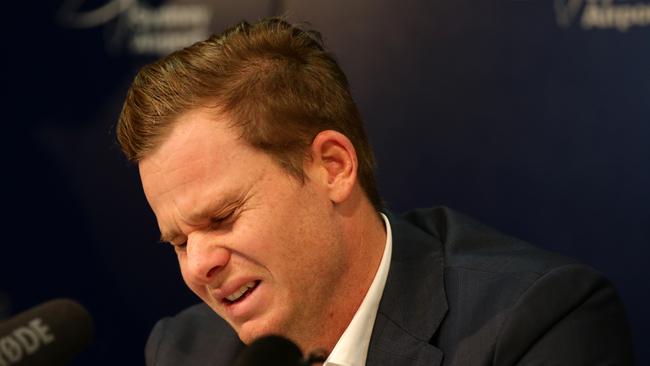
“Well that’s the call I got.”
“I’m listening to the vocab from [assistant referee] Ziggy [Przeklasa-Adamski],” Smith said. “I let go when he asked me to let go.”
“I can’t tell you any more Cameron.”
“Fair dinkum, rubbish on the face. They started it.”
We are funny about our heroes.
Heroes are no longer two-dimensional figures. Too much information is available nowadays, life has too many contradictions. What survives, though, is honesty and character true to itself.
Today’s heroes need to be like us, but not of us.
The word “hero” has Greek roots and means to “protect and to serve”. It contains a hint of sacrifice, that there will be a greater good.
The true heroes can’t be analysed because they touch us within the heart.
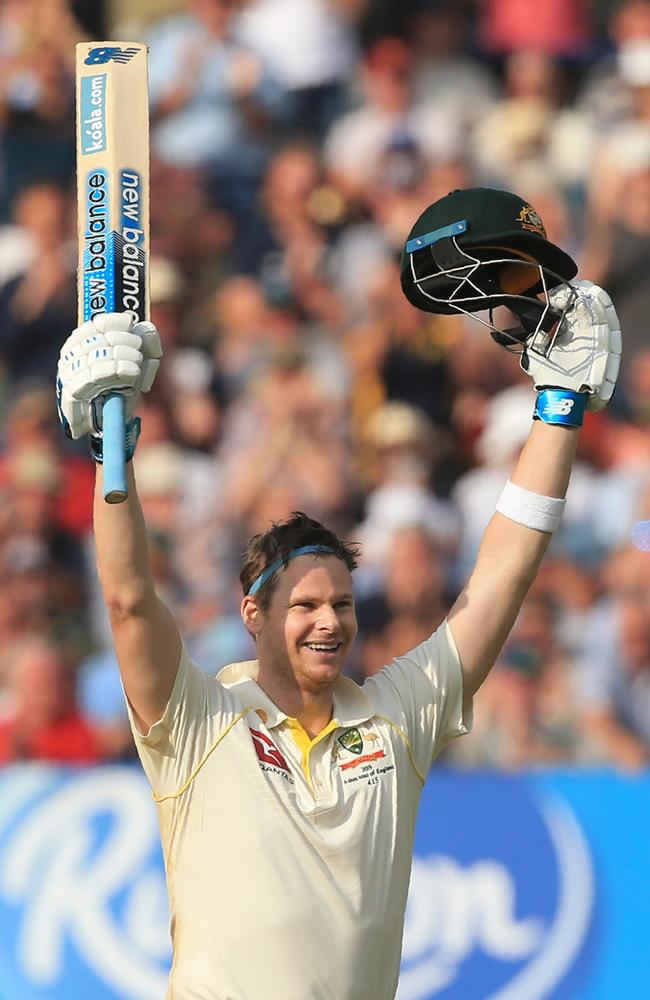
Muhammad Ali was at his classic best in the first period of his career. Surprisingly big — Sonny Liston’s eyes popped when they met at centre ring and he realised he had to look up to Ali to give him his dead man’s stare — he was as close to as an unbeatable heavyweight as there ever was.
But he was universally disliked. A loud mouth and braggart, and yet to see if he could take a punch, there was a suspicion, a distrust.
It wasn’t until Ali was stripped of his title and banned, after he rose from the canvas after Joe Frazier put him there with a left hook and when he took everything George Foreman could give, and put him away in the eighth, that love for Ali spread.
People needed to see him vulnerable, to see the limits, to fully appreciate what he overcame.
The other great athlete in the second half of the last century, Michael Jordan, was always admired but struggled to be loved like Ali. Asked to take a stand for civil rights, Jordan declined, afraid it would affect his marketability.

The coldness within Jordan was always there. He refused to let himself be vulnerable.
Ian Thorpe was admired but distant. Cathy Freeman, equally private, collapsed to the running track and in front of the world was small and vulnerable and, instantly, loved.
Steve Smith was banned for 12 months for ball tampering when other greats around the world — Faf du Plessis (caught twice, half match fee and entire match fee fines), Sachin Tendulkar (suspended sentence, later overturned), Mike Atherton ($4000 fine), Waqar Younis (one game, 50 per cent match fee) — received far more lenient penalties.
Smith returned to Australia and collapsed in tears. More than the laws of the game, Smith realised he had broken a trust.
He never complained about the harshness of the penalty while he was suspended, or the boos when he returned. Instead he put his head down and made more runs than anybody else.
As for the other Smith, Cameron, he runs out in Melbourne to play the Gold Coast on Sunday and will not even blush.
LISTEN! In this week’s episode of the Matty Johns Podcast, Matty, Kenty and Finchy look at the challenge confronting the Knights, name their team of the decade and ask who wins an NRL coaches fight night.
Subscribe to the Matty Johns podcast on iTunes, Spotify, or Google Podcasts.
This Smith, like the other Smith, is already an icon.
His career is not yet over and already many regard him as the greatest to have played the game. He will be named an Immortal the moment he is eligible.
Yet in a sport where he should be celebrated, this Smith is polarising. In some parts, deeply unpopular.
He has won almost every award possible to him in rugby league but not the Provan-Summons Medal, as voted by the fans.
Steve Smith understood the bigger picture, that the game was greater than him.
It is hard to see if Cameron Smith ever understood that.
The discourse with Cummins last Saturday was just a small example.
The one few want to talk about, because it remains upsetting, is Smith standing over Alex McKinnon, his neck broken in a tackle that ended in a seven week suspension, arguing with the referee that the tackle should not be a penalty.
There is a feeling Smith gets preferential treatment from the game’s administration.
The NRL officially reprimanded Smith for the Simonsson tackle, sending him a concerning act notice.
Yet the next day the game’s head of football, Graham Annesley, basically exonerated Smith by saying Melbourne was no worse at wrestling holds than other clubs.
So this Smith not only got away with it again but, as always, remains unapologetic.
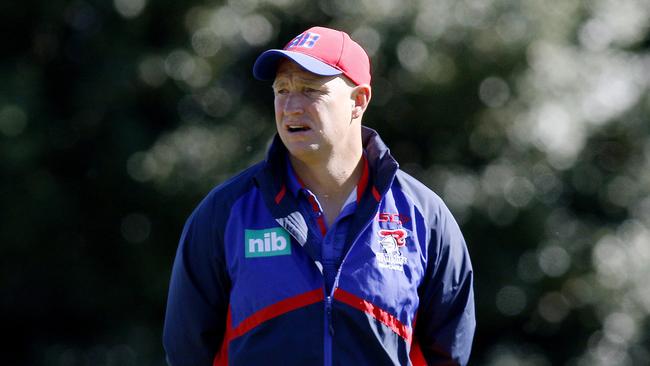
INTERNAL ISSUES EXPOSED IN BROWN’S DEPARTURE
Coaching changes always peel back the covers on a club’s internal politics and, despite the Roosters clearing the way for assistant coach Adam O’Brien to move to Newcastle next season, there is still work to be done.
The manner in which Nathan Brown was sacked and the conversations that were held for it to happen, many of which were discovered only after Brown walked, has startled a few Knights officials.
It seems conversations were happening without their knowledge, when they should have known, while on the flipside some were involved in the conversations when they had no right to be.
The Knights might have landed on their man in O’Brien but the unusual way it unfolded has some questioning how the club is being run, the influence of some, and omission of others.
If O’Brien is to be the coach many believe he is then one of his first jobs will be to get it all in order, otherwise he will have no control if the Knights hit choppy waters.
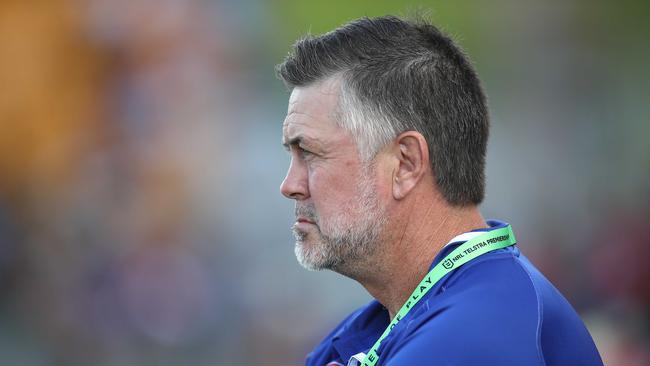
PAY PROVES HE’S DAMN TOUGH DOG
Dean Pay seems to be solving one problem at Canterbury, a club beset with salary cap problems, roster restrictions and lingering internal politics.
Pay was believed to be at long odds to save his job at the beginning of the season, which was less a reflection on the actual job he was doing than it was on what was happening around him. But Canterbury’s past two months, six wins from eight, has shown Pay has what it takes.
Originally published as Cameron Smith must learn from Steve Smith and see the big picture, writes Paul Kent


